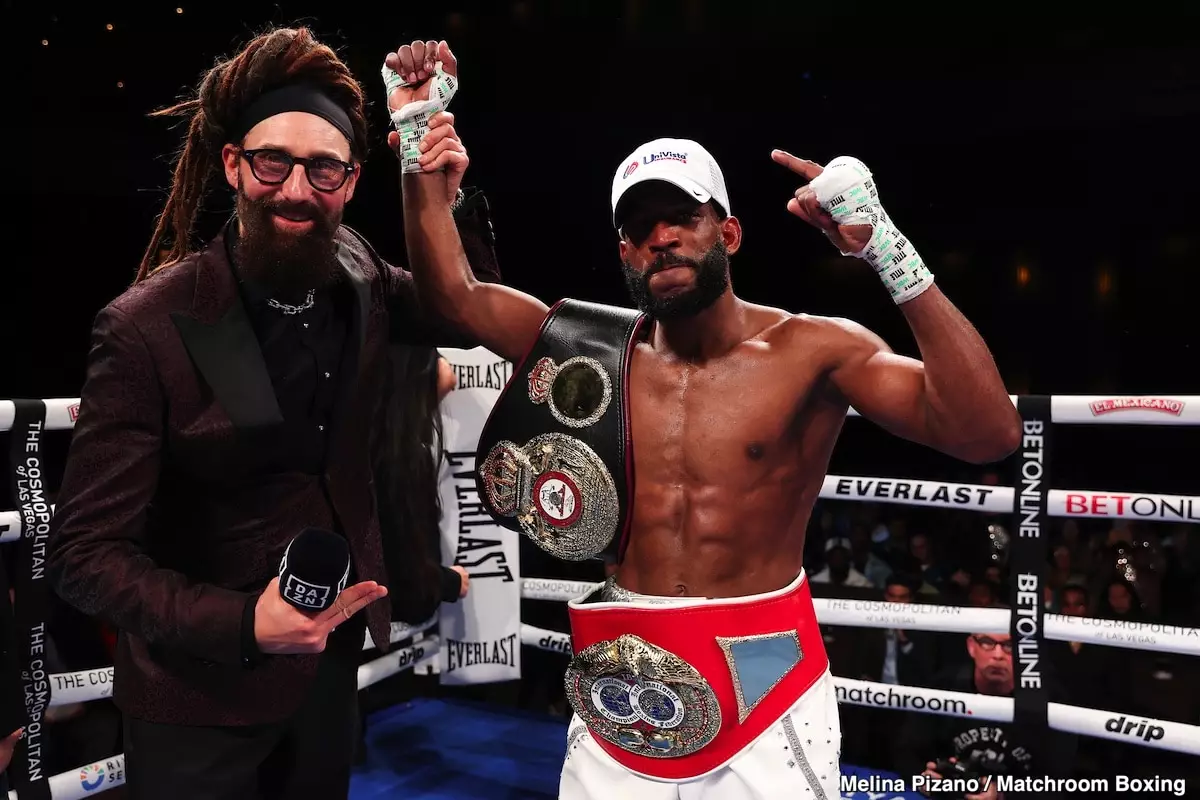Andy Cruz, the 2020 Olympic gold medalist, is crafting a compelling narrative in the boxing world. In a sport often dominated by humble champions and whispering contenders, Cruz is opting for the polar opposite approach: he is boldly stepping into the role of the villain. With a record of 5-0 and 2 KOs, the #1 WBC-ranked lightweight is no longer waiting for opportunities to materialize; he’s challenging his peers directly and publicly. The audacity of Cruz’s persona captivates fans and critics alike, bringing a fresh vibrancy to the lightweight division that’s palpable.
Recently, he’s turned his sights on Keyshawn Davis, a fellow fighter with whom he has a complicated history. Cruz claims Davis is apprehensive about facing him, given their past encounters in amateur boxing—where Cruz triumphed decisively four times. Instead of a simple call-out, Cruz’s relentless taunts create an atmosphæric tension; it’s a raw manifestation of competitive spirit that boxing sorely needs. He’s urged Davis to step into the ring, declaring, “Tell Keyshawn Davis, instead of wanting revenge, to come and get it,” propelling himself into the narrative as the confrontational figure in a once-quiet rivalry.
The Promotional Conundrum
Promoters hold significant power in the boxing ecosystem, often steering fighters away from potentially damaging matchups. Eddie Hearn, Cruz’s promoter, is caught in an interesting dilemma. Hearn, who also promotes the young and promising Shakur Stevenson, appears reluctant to arrange a bout between the two. The underlying narrative suggests that Hearn fears Cruz’s potential to defeat Stevenson, which would complicate promotional dynamics. If Cruz wins, he solidifies his status while creating a challenging situation for Hearn—who would be substantially sidelined by a loss for one of his prime fighters. This kind of political maneuvering in boxing often leads to missed opportunities for fans and fighters alike.
Similarly, Abdullah Mason, another fighter on the rise, is experiencing a steady build-up under Top Rank. With a healthy record of 17-0 and 15 KOs, Mason is being matched cautiously to avoid exposing weaknesses too soon. The boxing world is rife with talent, but the strategy of protective matchmaking can lead to a stagnation of exciting bouts. Cruz, sensing that the lightweight division is increasingly becoming a roadblock, is contemplating a move up to light welterweight—a division known for its action-packed matchups and less saturation of top-tier fighters.
A Call to Action
The crux of Cruz’s message is clear: he is demanding respect and recognition in a sport that is notoriously unforgiving. His willingness to vocalize challenges and paint himself as the villain not only propels his career but also intensifies the sport’s narrative fabric. This confrontational artistry may indeed be the catalyst for getting the opponents he seeks—or at the very least, it generates the spectator interest needed to ignite his pursuits. In the evolving landscape of boxing, Andy Cruz’s persona and tactics reflect a growing need for fighters to embody not just skill and strategy within the ring, but an engaging narrative outside of it.

